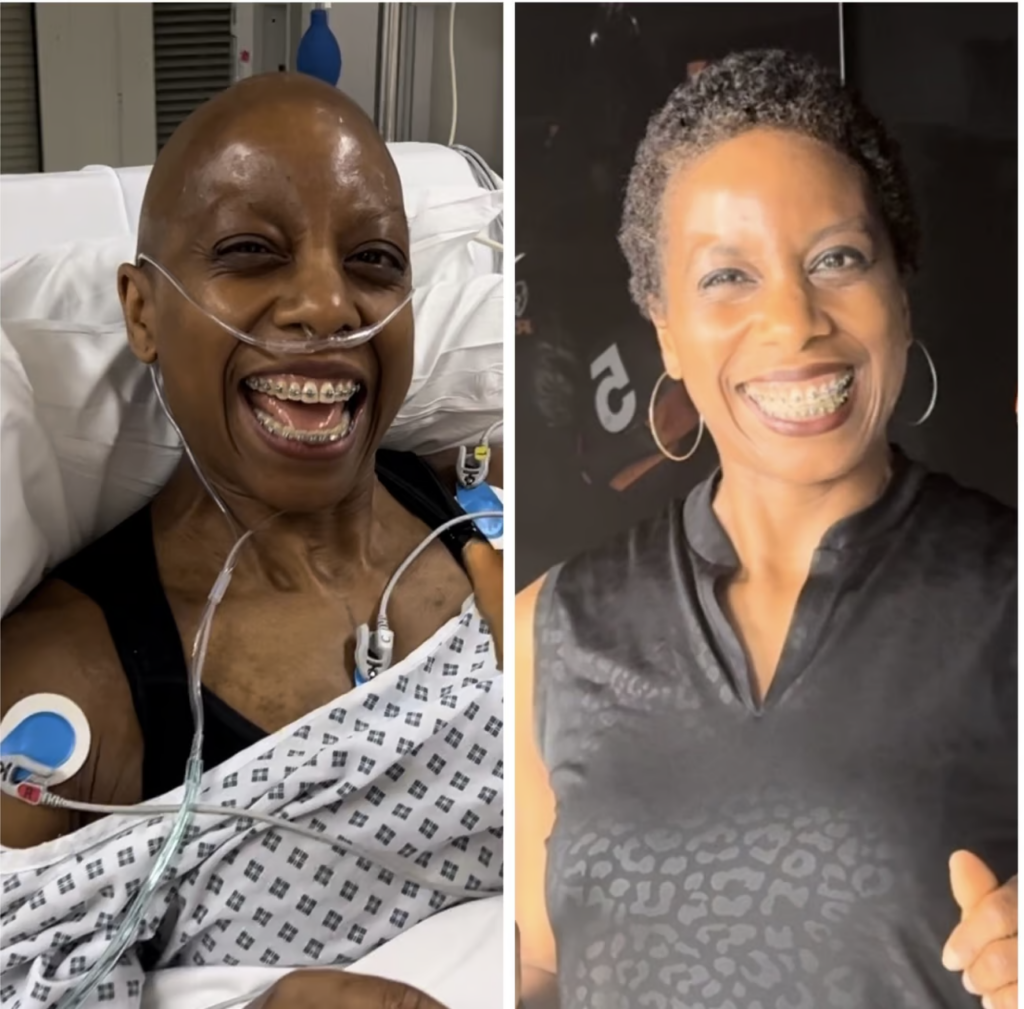As I am sure you are all aware, because of my own cancer journey, I have been literally “reborn” as a coach and learning so much incredible information each week that I share with my Women’s Wellness With Cancer Community.
As cancer now affects 1 in 2 people, I thought I’d share this weeks topic which relates to cancer treatment induced fatigue – possibly THE most debilitating side effect of all.
If you or a loved one is going through treatment, read on…it may just provide a few solutions to unlocking the energy puzzle.
Increasing Energy and Vitality During Cancer Treatment
Cancer treatment often involves therapies such as chemotherapy, radiation, surgery, and immunotherapy, which can have significant side effects, including fatigue and reduced energy levels. Here are several evidence-based strategies to help manage these effects and improve energy and vitality:
1. Nutrition and Diet
Maintaining a balanced diet is crucial for supporting energy levels during cancer treatment. Proper nutrition can help manage side effects, maintain strength, and support recovery.
Key Recommendations:
- Balanced Diet:
- Protein: Include lean proteins such as chicken, fish, beans, and legumes to support muscle maintenance and repair.
- Complex Carbohydrates: opt for whole grains, fruits, and vegetables to provide sustained energy.
- Healthy Fats: Include sources like avocados, nuts, seeds, and olive oil for essential fatty acids.
- Frequent Small Meals: Eating smaller, more frequent meals can help manage nausea and maintain energy levels.
- Hydration: Staying well-hydrated is essential. Aim for at least 8-10 cups of water per day unless advised otherwise by a healthcare professional.
- Supplements: Consider vitamin and mineral supplements if dietary intake is insufficient. Consult with a healthcare provider before starting any supplements.
Evidence:
- A study published in the journal Nutrition and Cancer highlights the importance of individualised nutrition plans to manage fatigue and other treatment side effects .
- Research in Oncology Nursing Forum emphasises the role of nutritional counselling in improving outcomes for cancer patients .
2. Physical Activity
Exercise can help combat fatigue, improve mood, and enhance overall quality of life for individuals undergoing cancer treatment.
Key Recommendations:
- Aerobic Exercise: Engage in moderate aerobic activities such as walking, cycling, or swimming for at least 150 minutes per week, as tolerated.
- Strength Training: Include strength exercises 2-3 times a week to maintain muscle mass and strength.
- Flexibility and Balance: Incorporate stretching and balance exercises to improve flexibility and reduce injury risk.
- Adaptability: Tailor exercise intensity and duration to individual capabilities and treatment phases. Short, frequent sessions may be more manageable than longer workouts.
Evidence:
- A systematic review published in the Journal of Clinical Oncology found that exercise interventions significantly reduce cancer-related fatigue .
- The American College of Sports Medicine highlights the benefits of exercise in cancer recovery, including improved energy levels and reduced treatment side effects .
3. Sleep and Rest
Adequate rest and sleep are critical for maintaining energy levels and supporting the body’s healing processes.
Key Recommendations:
- Sleep Hygiene: Maintain a regular sleep schedule, create a restful environment, and avoid screens before bedtime to improve sleep quality.
- Naps: Take short naps (20-30 minutes) during the day if needed, but avoid long naps that may disrupt night-time sleep.
- Relaxation Techniques: Practice relaxation methods such as meditation, deep breathing, or yoga to reduce stress and improve sleep quality.
Evidence:
- Research in Current Opinion in Supportive and Palliative Care indicates that cognitive-behavioural therapy for insomnia (CBT-I) and other sleep interventions can significantly improve sleep quality in cancer patients .
4. Mind-Body Practices
Mind-body practices can help reduce stress, improve mood, and enhance overall well-being.
Key Recommendations:
- Mindfulness Meditation: Regular practice can help reduce anxiety and improve emotional well-being.
- Yoga and Tai Chi: These practices combine physical movement, meditation, and breathing exercises to enhance physical and mental health.
- Guided Imagery: This relaxation technique can help reduce stress and promote a sense of calm and control.
Evidence:
- A meta-analysis in Psycho-Oncology found that mindfulness-based interventions significantly improve psychological well-being in cancer patients .
- Studies in Cancer Nursing have shown that yoga and tai chi can reduce fatigue and improve quality of life during cancer treatment.

5. Psychosocial Support
Emotional and social support play a crucial role in managing the psychological impact of cancer treatment.
Key Recommendations:
- Counselling and Therapy: Engage in individual or group therapy to address emotional challenges and improve coping strategies.
- Support Groups: Connect with others going through similar experiences to share advice and encouragement.
- Family and Friends: Maintain open communication with loved ones to enhance emotional support and reduce feelings of isolation.
Evidence:
- A review in the Journal of Psychosocial Oncology highlights the positive impact of psychosocial interventions on emotional well-being and quality of life for cancer patients .
6. Medication Management
Proper management of medications can help mitigate side effects and improve energy levels.
Key Recommendations:
- Side Effect Management: Work with healthcare providers to manage treatment-related side effects such as nausea, pain, and insomnia.
- Medication Adherence: Ensure medications are taken as prescribed to maximise treatment effectiveness and minimise complications.
Evidence:
- A study in Cancer emphasises the importance of managing side effects to improve quality of life and treatment adherence.
At M.A.S.K. we are now fully certified and accredited CanRehab (UK) and CETI (US) Cancer rehabilitation and Exercise professionals.
If you know anyone who’d like a complimentary session, or even a coffee and a chat from someone who’s been on the journey…please get in touch.
Have a truly awesome day everyone.
Until next time,
| Vanessa x |
 |

